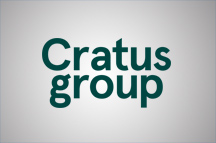When voters in Kent last went to the polls to elect their County Council in May 2021, Boris Johnson was Prime Minister and still was popular with the British public. The “Boris Bounce” was certainly visible with the Conservatives winning more than 70% of seats on Kent County Council. Contrast that to four years on, when Kemi Badenoch called Kent’s election an ‘uphill challenge’, and it’s a very different story.
Given their overall strength in the county and the unpopularity of the Labour Government, the Conservatives will most probably remain the largest Party in Kent at these elections but many predict a No Overall Control scenario which may well lead to a Centre Left Party coalition.
Recounting the swing from the General Election last July, when the Liberal Democrats gained Tunbridge Wells (turning a Constituency which had been Conservative since its formation) and the Labour Party gained the likes of Ashford, Dover and Dartford, the Conservatives will be fighting to stem further losses from the other two traditional main parties.
The success of politicians like Cllr Rich Lehmann in Swale for The Green Party, who leads the five-strong group at Kent County Council, highlights that there is certainly space in these elections for non-traditional parties. Indeed, the breakdown of a ‘rainbow coalition’ on Swale Borough Council in December, Reform’s defeat of Labour in a by-election that same month and local opposition to the 8,400 home Highstead Park development, means that local factors are likely to be a particular motivating factor in this part of Kent.
The Green Party are challenging Labour in Dartford, where their co-leader Carla Denyer MP campaigned during a visit to Kent last week. The Greens will also be working to gain Whitstable West, amongst other targets, and may benefit from tactical voting across the county as all eyes turn to Reform, who are vying with the Liberal Democrats to be the primary challengers to the Conservatives.
Places like Thanet, which showed significant support for Reform in the General Election, are amongst the numerous battlegrounds for Reform. With Thanet having previously been a UKIP-controlled council this will likely be an area Reform performs strongest. With so many other parties in the mix and the worst electoral honeymoon period of any UK Government in living memory, Labour’s gains will likely be limited in these elections.
The stakes of this election are heightened. With Kent’s unsuccessful bid to make it onto the Government’s Devolution Priority Programme (DPP), the dynamics at County Hall after Thursday will undoubtedly shape Kent’s proposals for local government reorganisation (which are due by 28 November).
To sum up these elections in three words: dealignment, devolution and defeat will be the watch words we suspect many will be bounding about in the weeks to come. In an era of multi-Party politics, the influence of tactical (or switch) voting in these elections may prove crucial in deciding Thursday’s results and the future leadership of Kent County Council.












